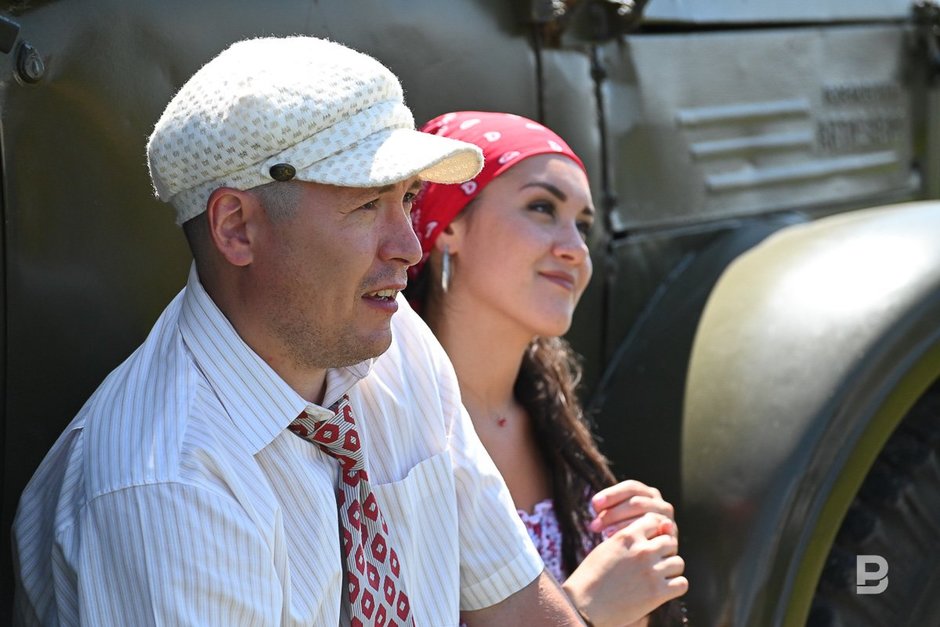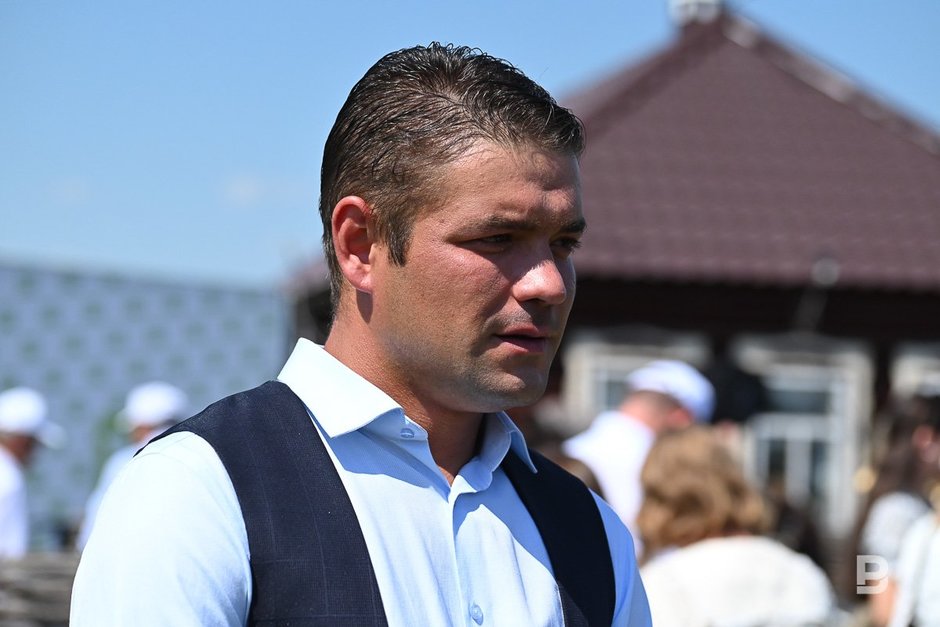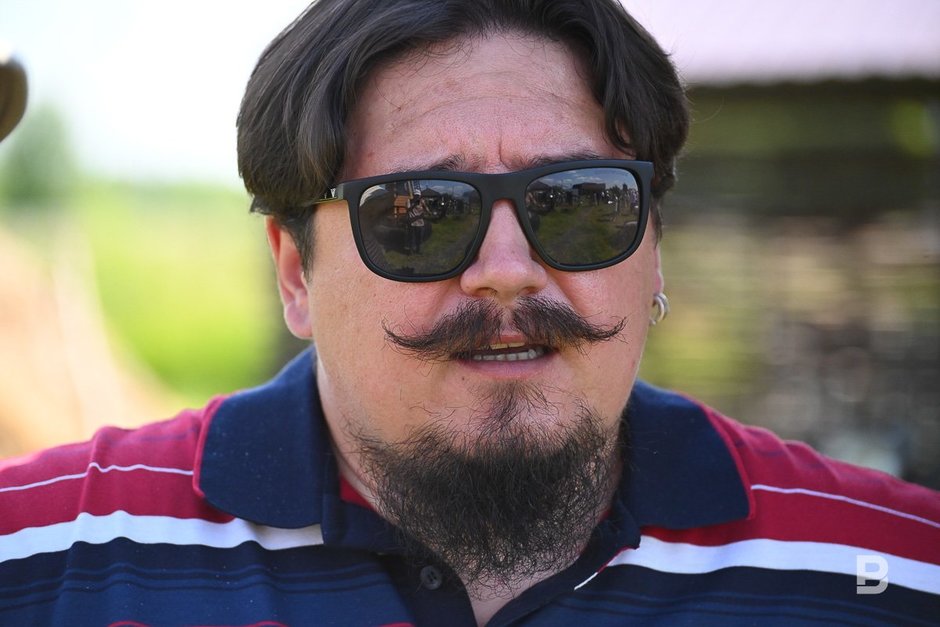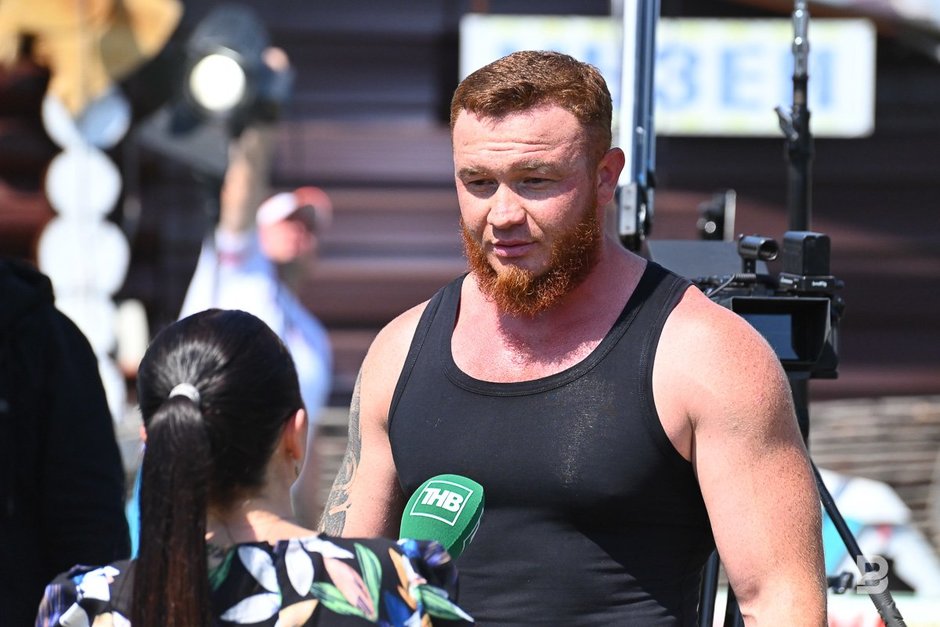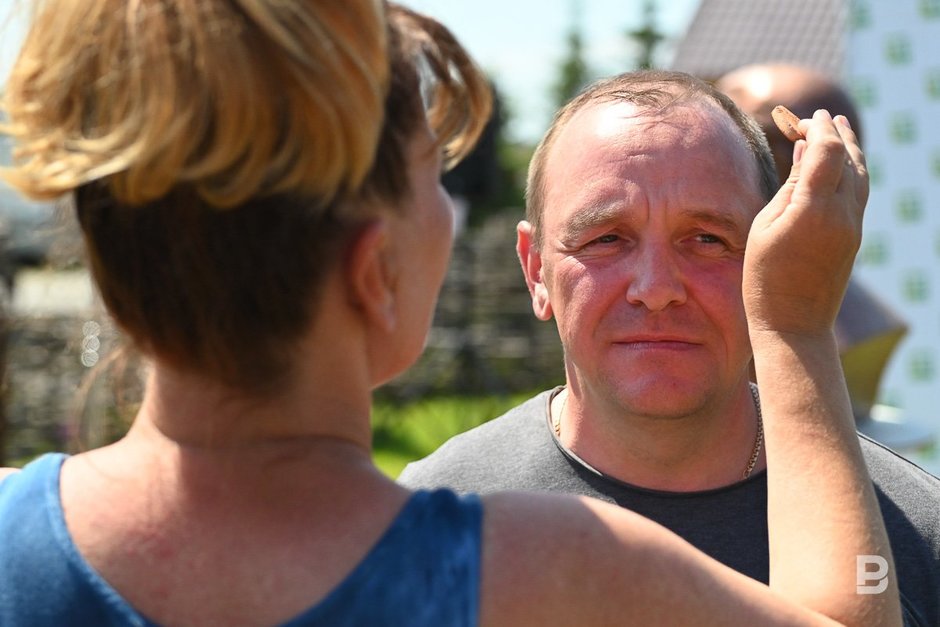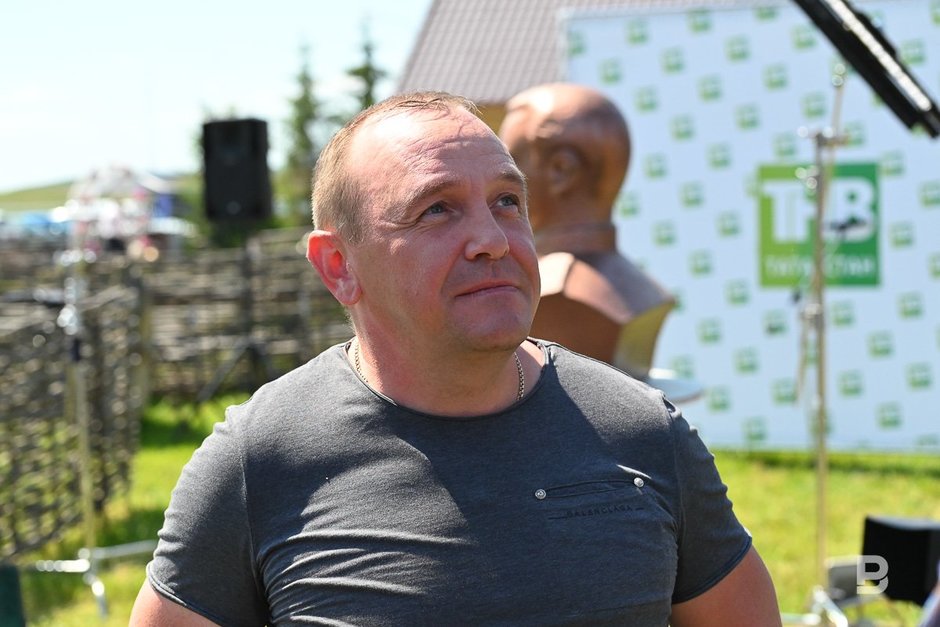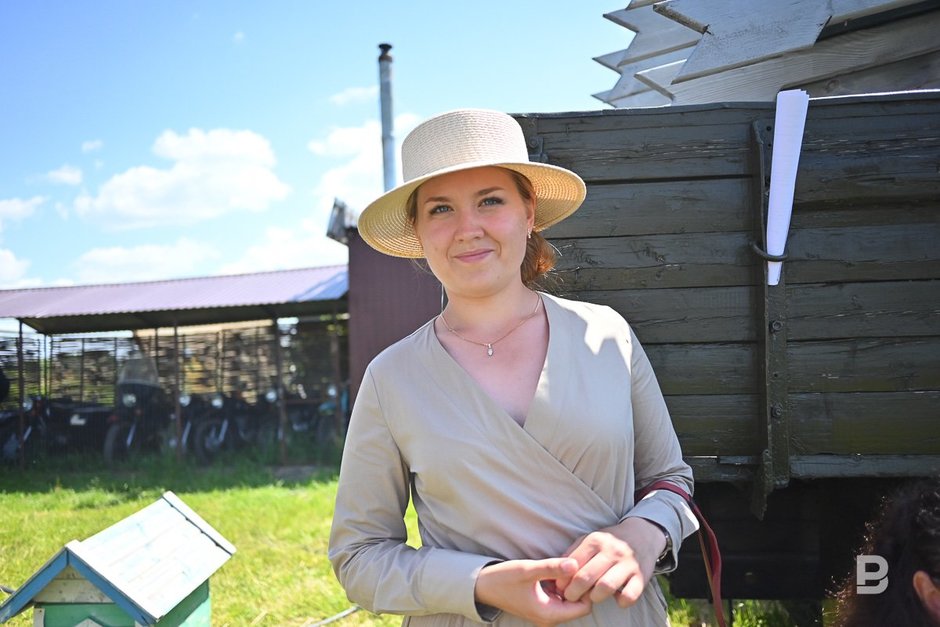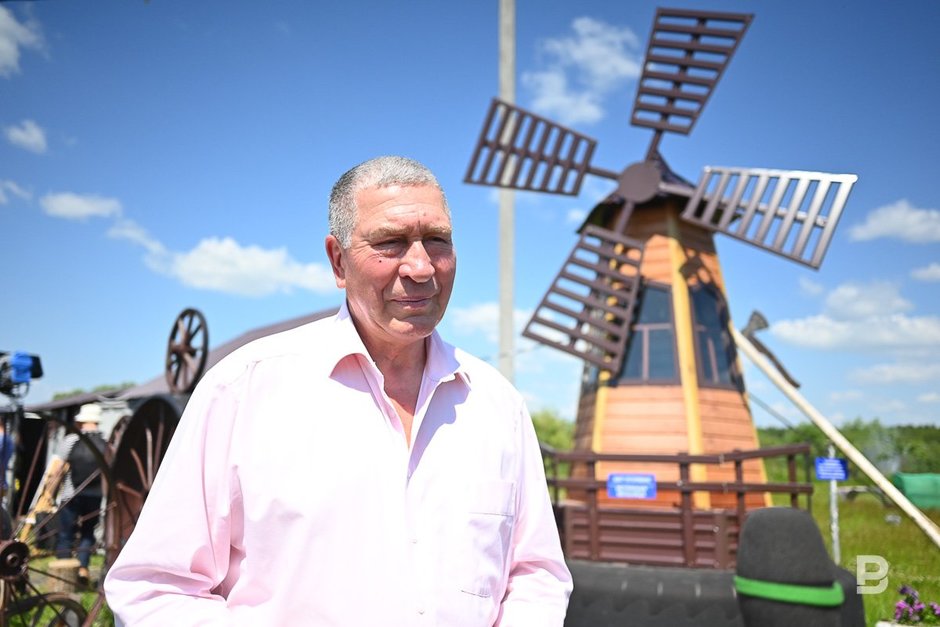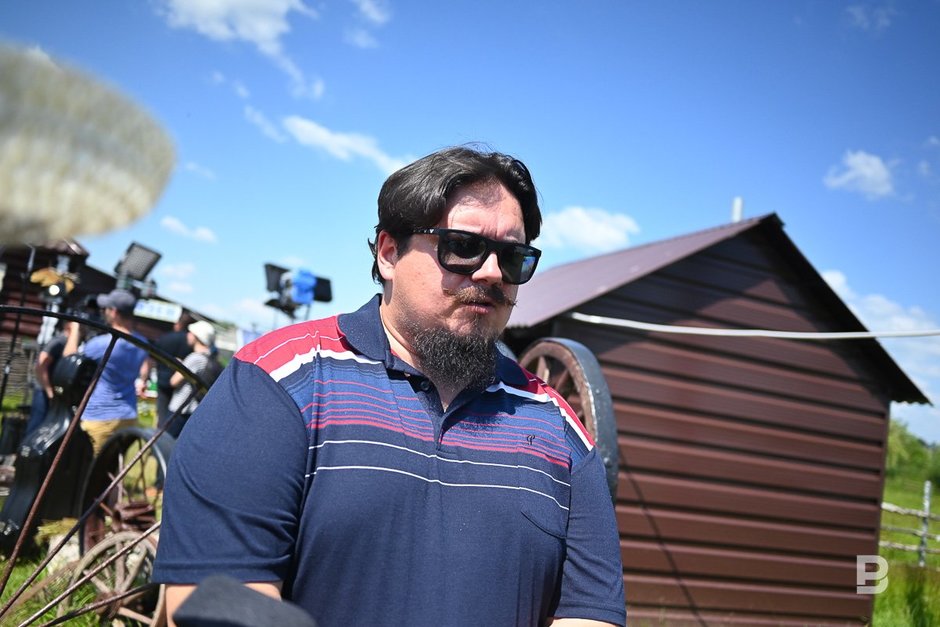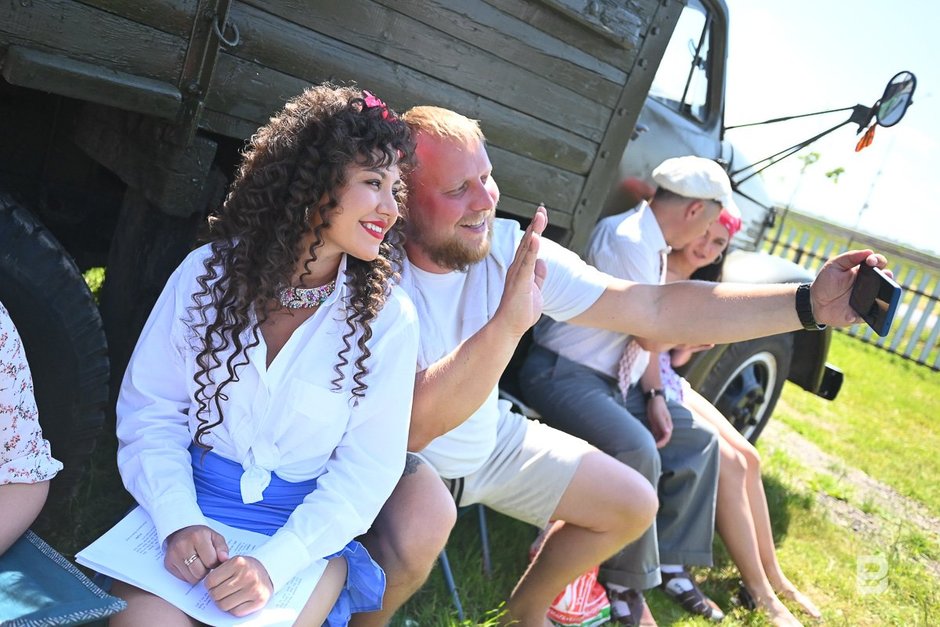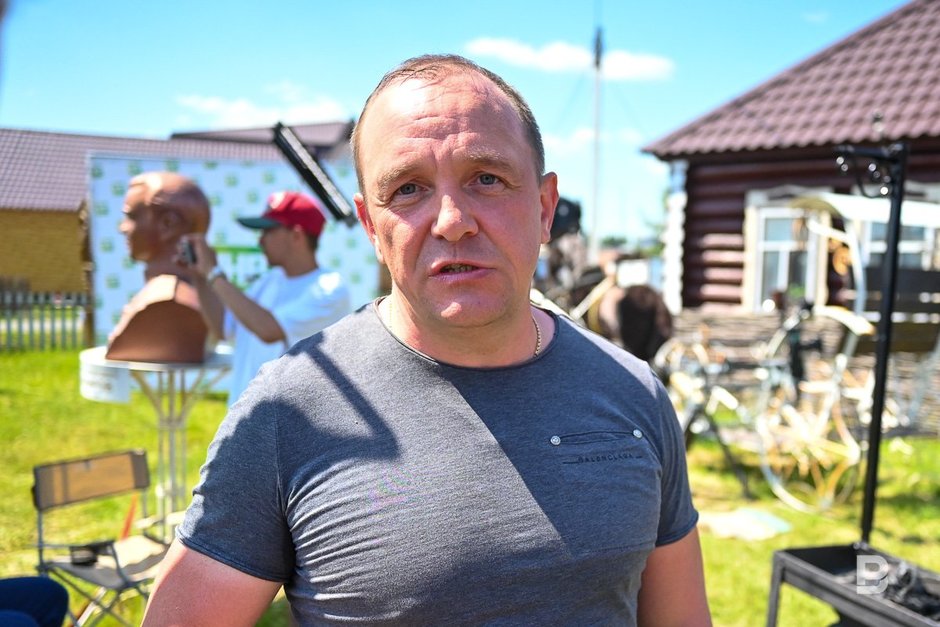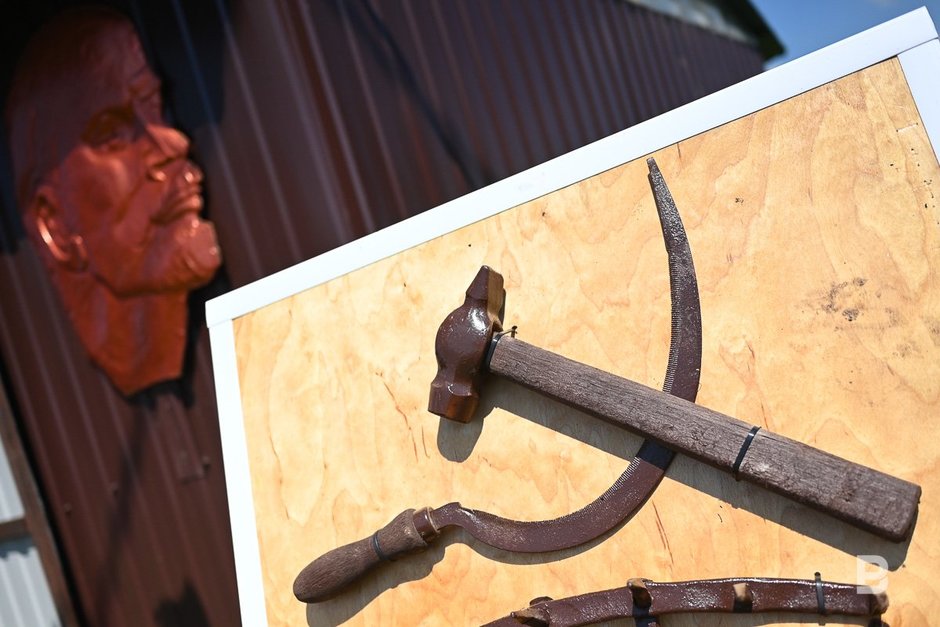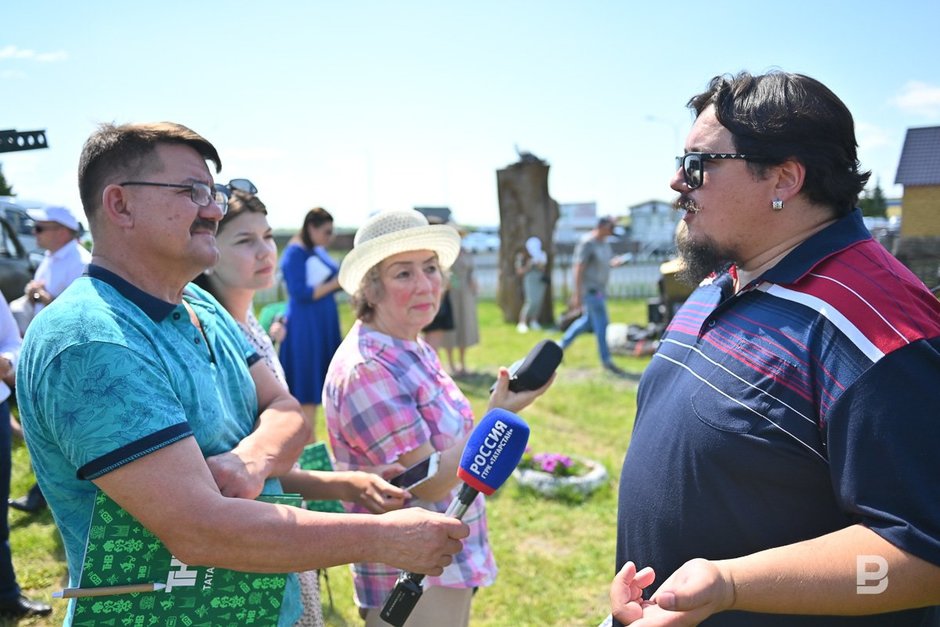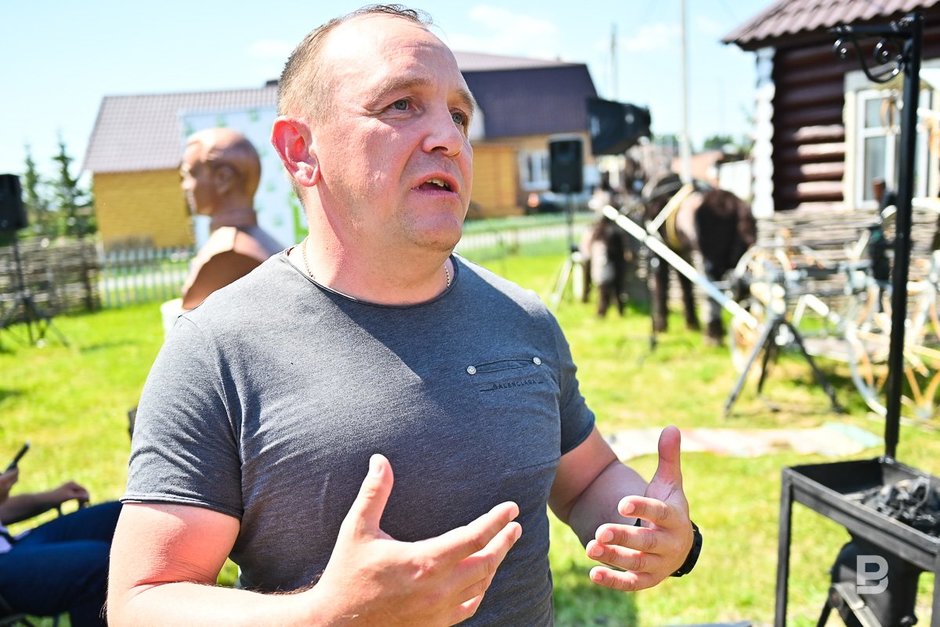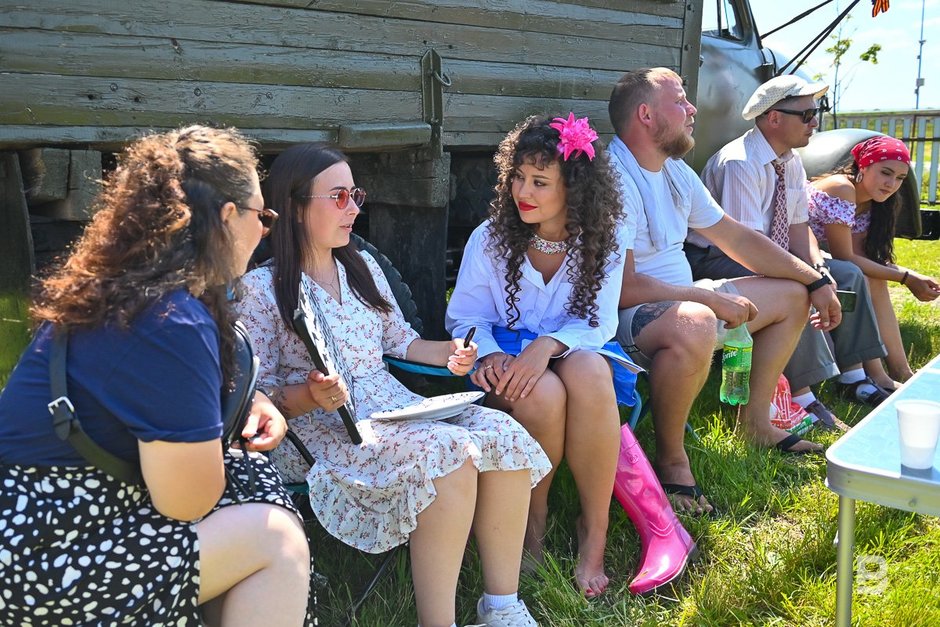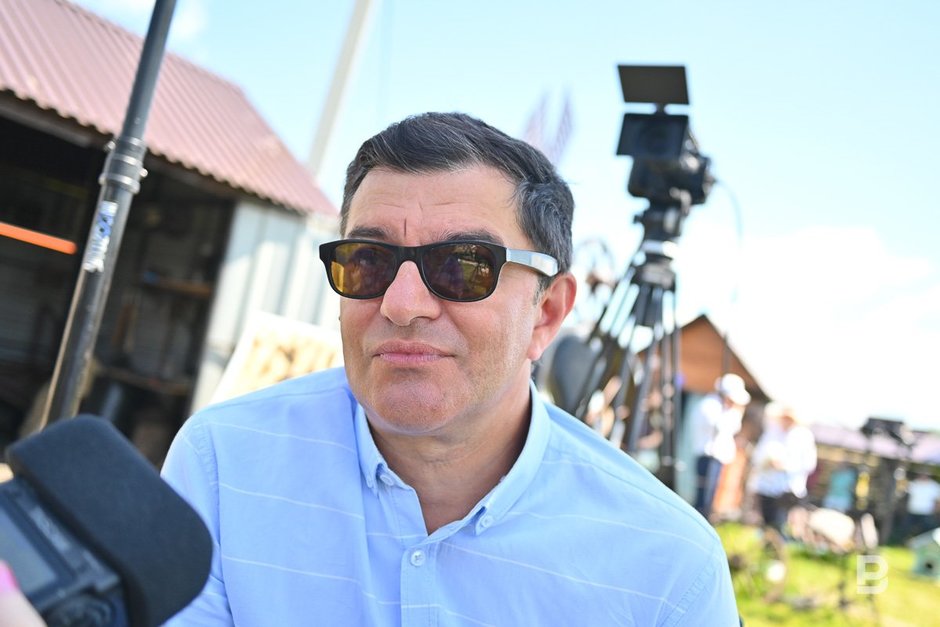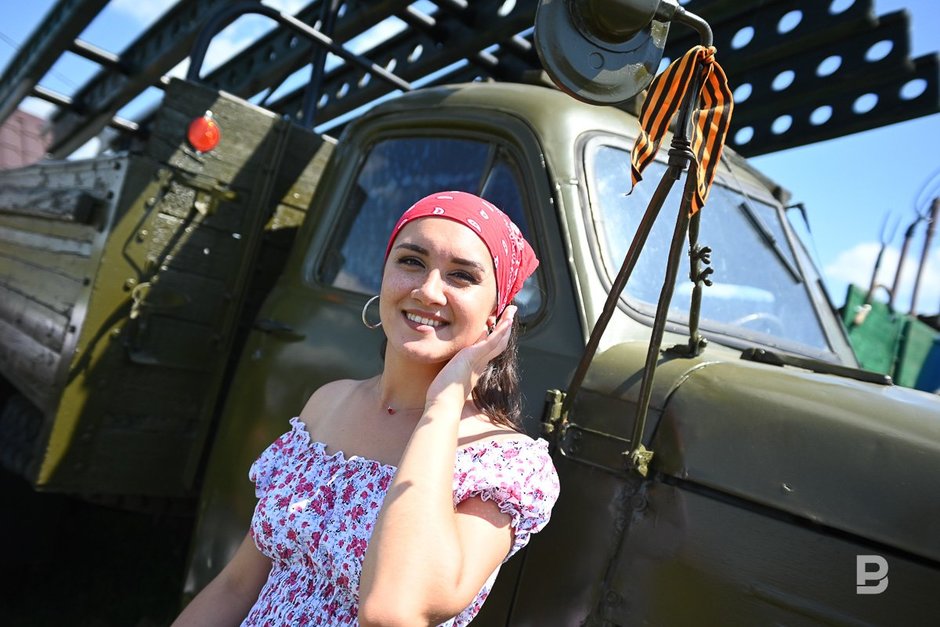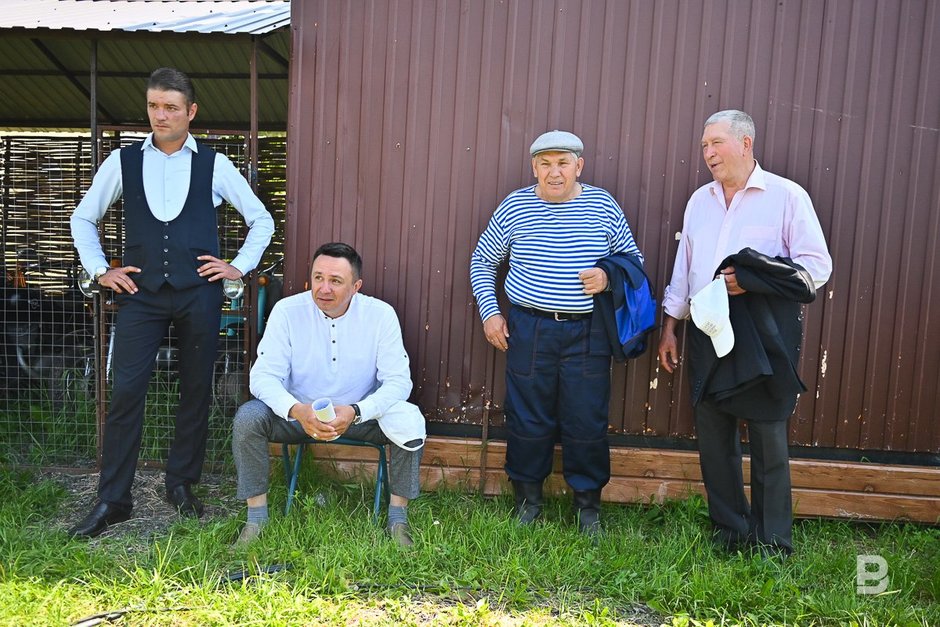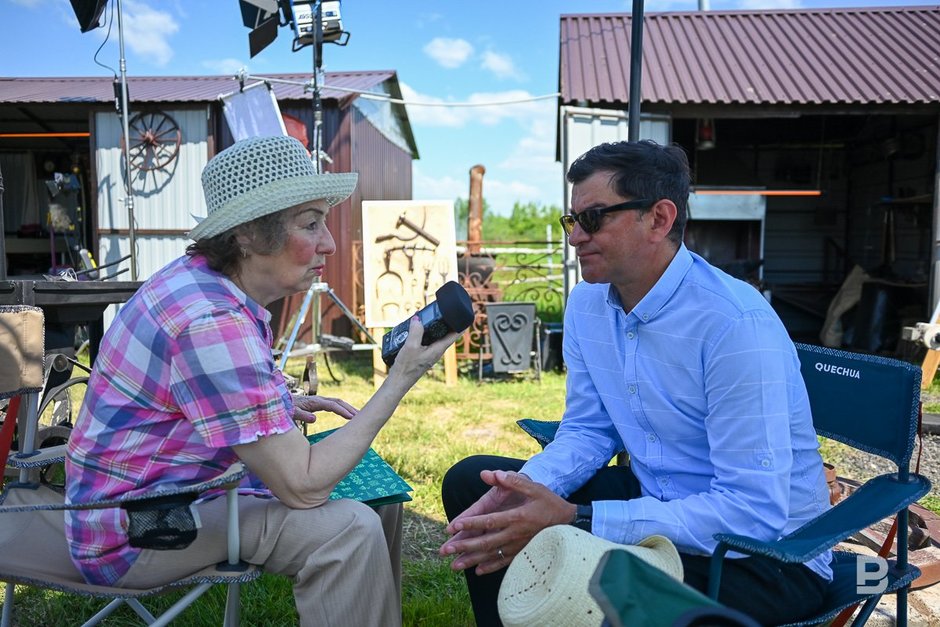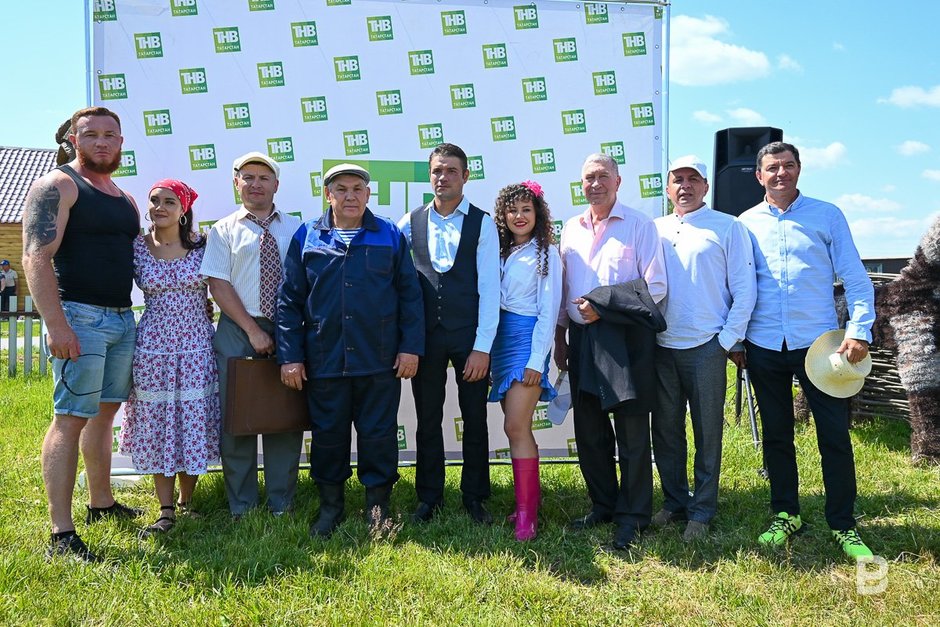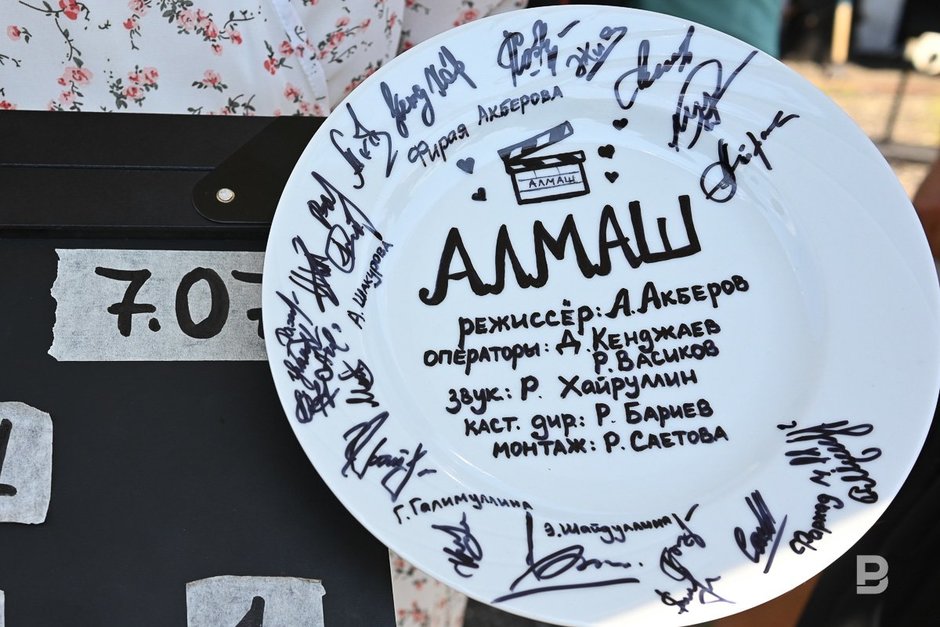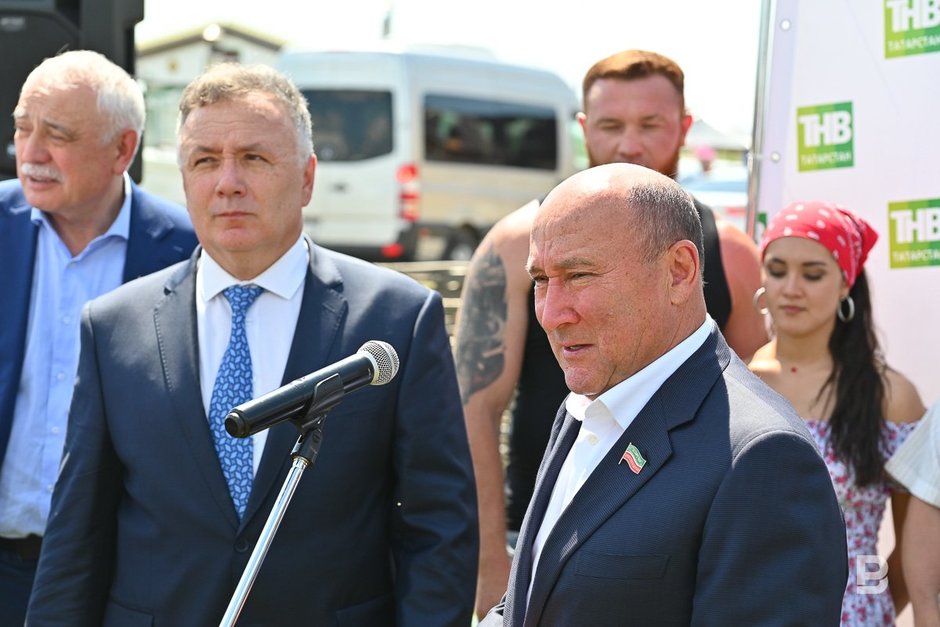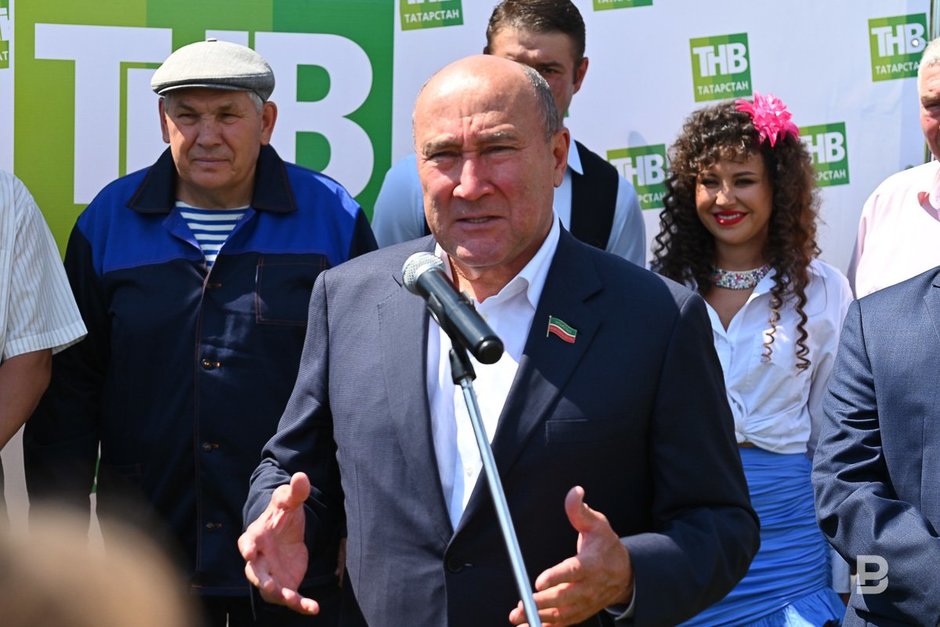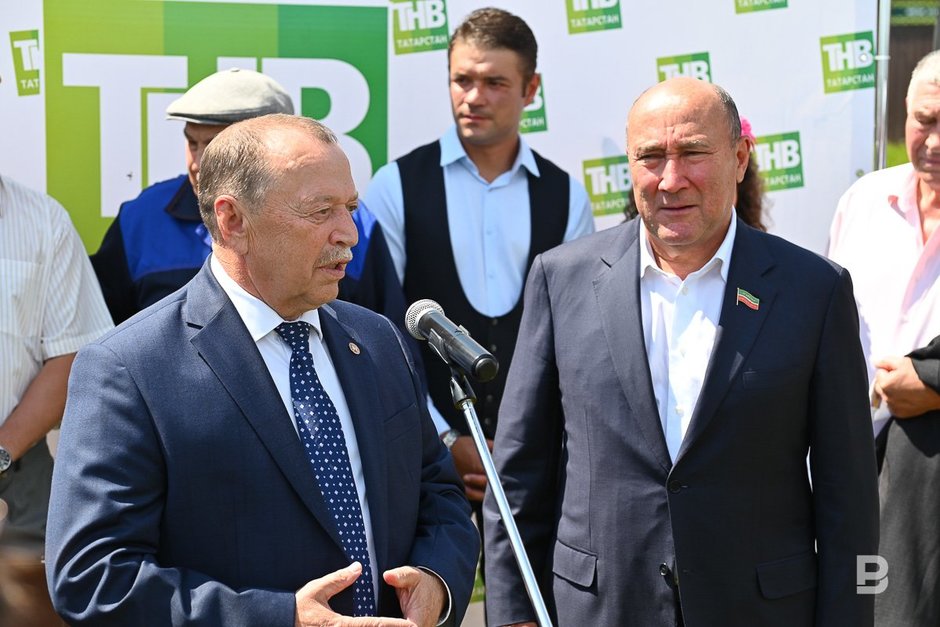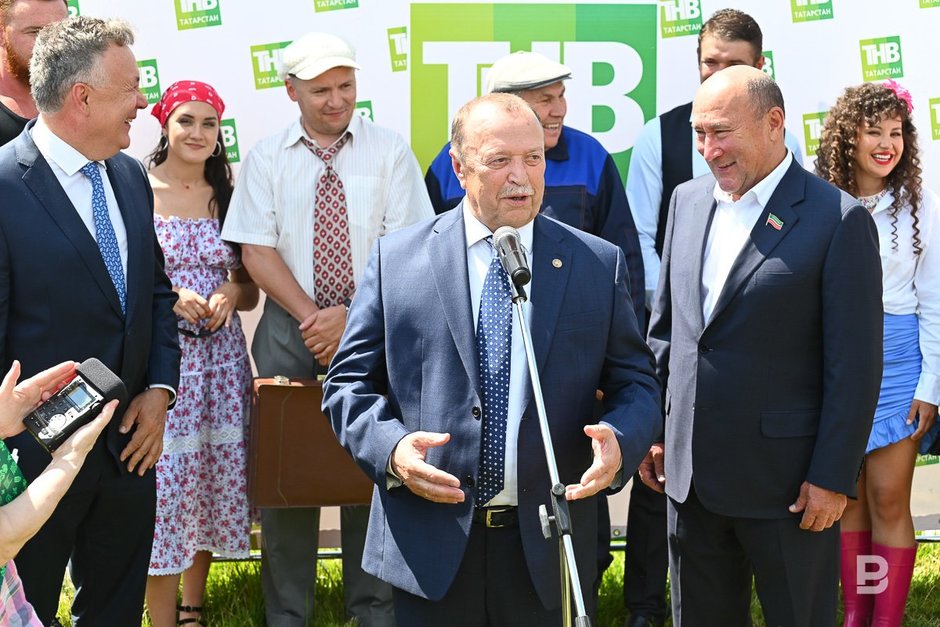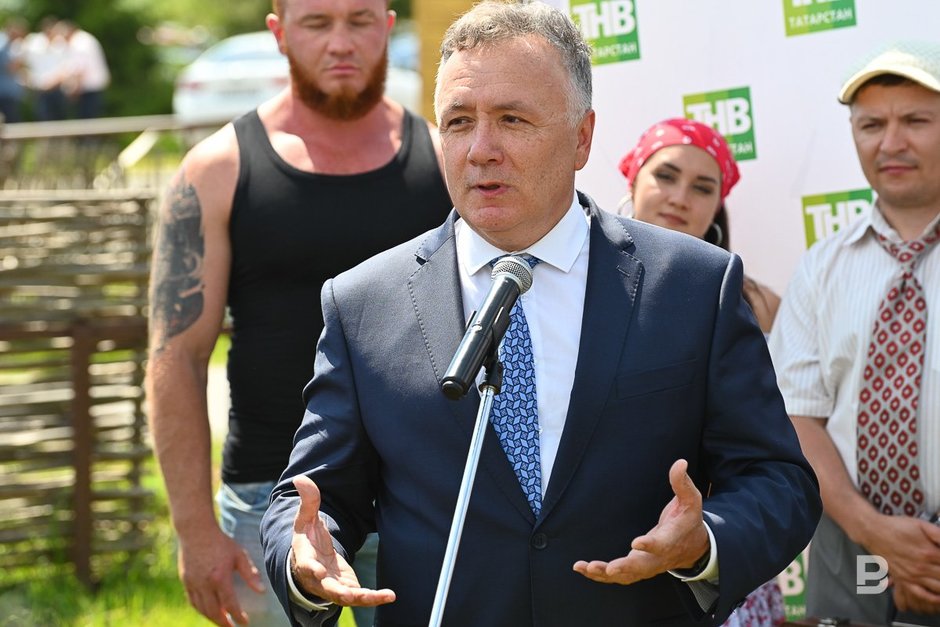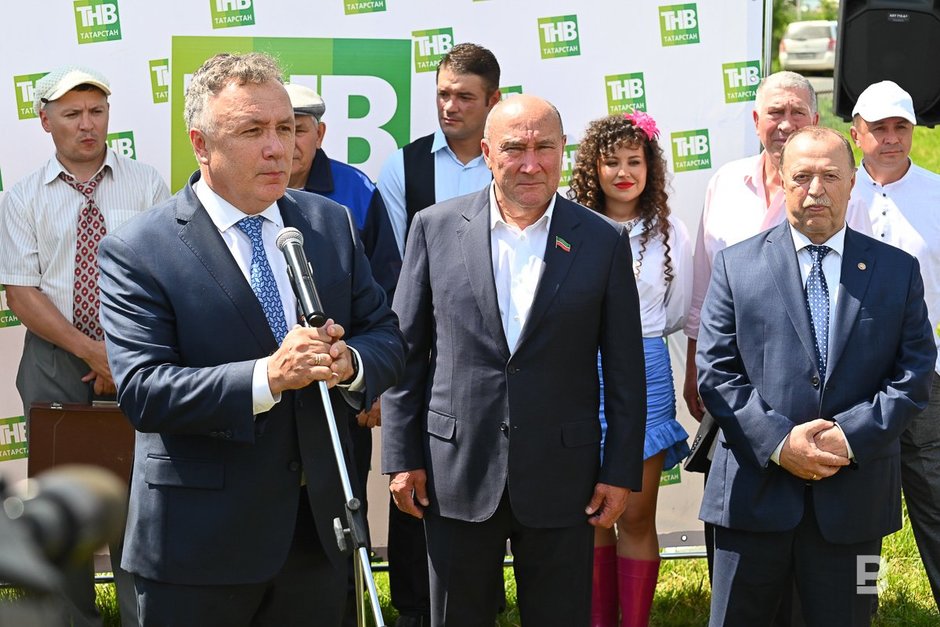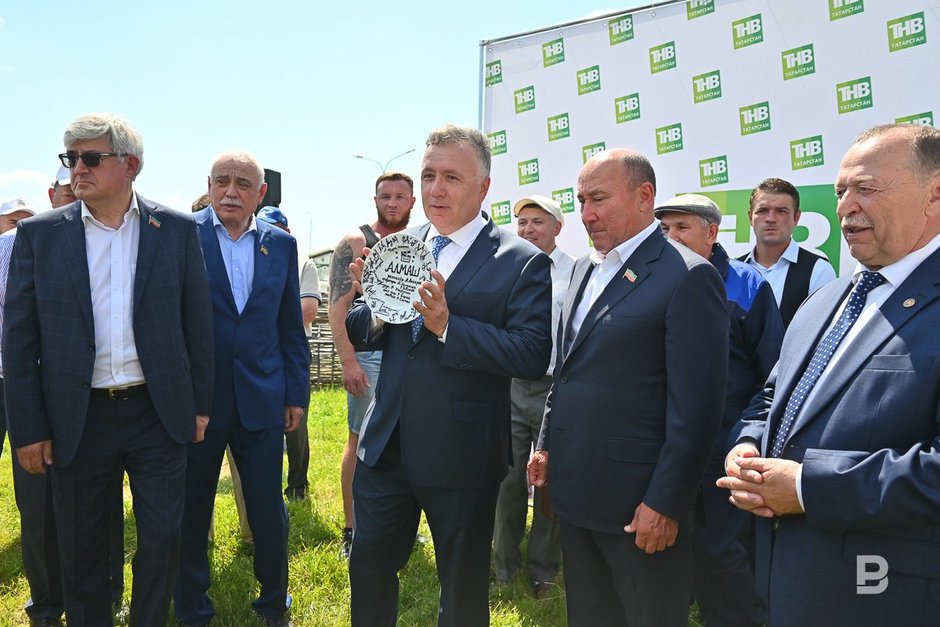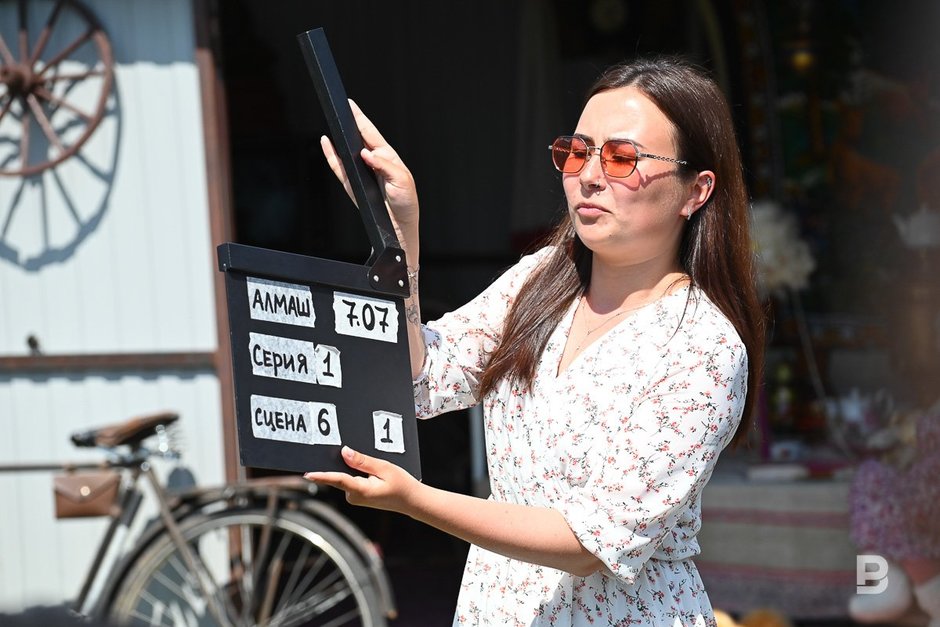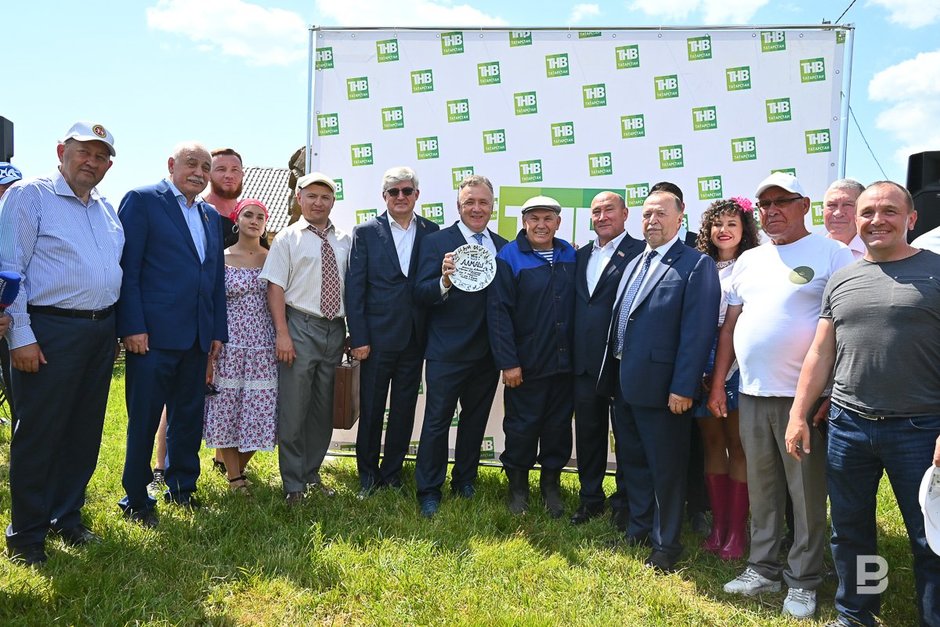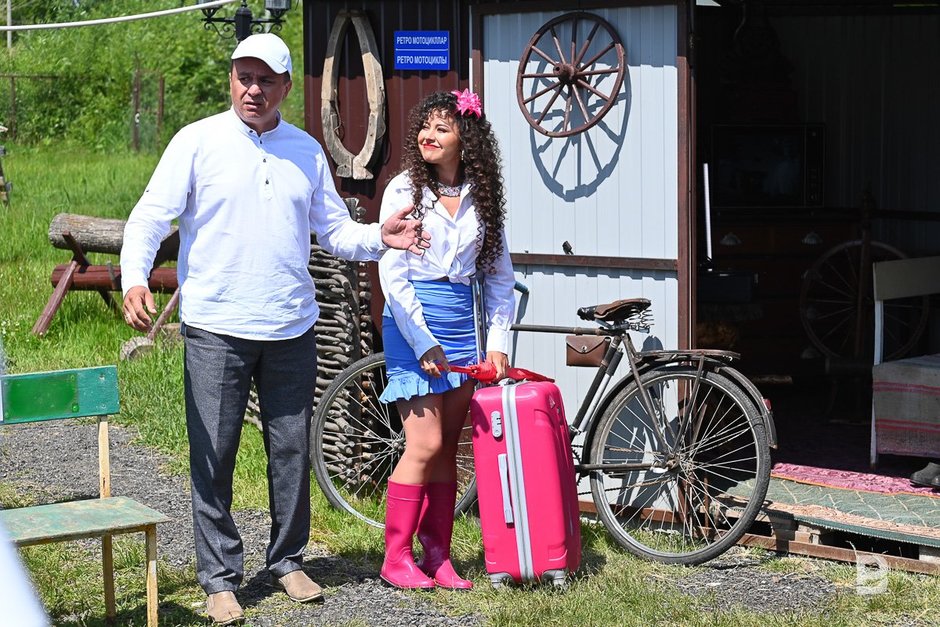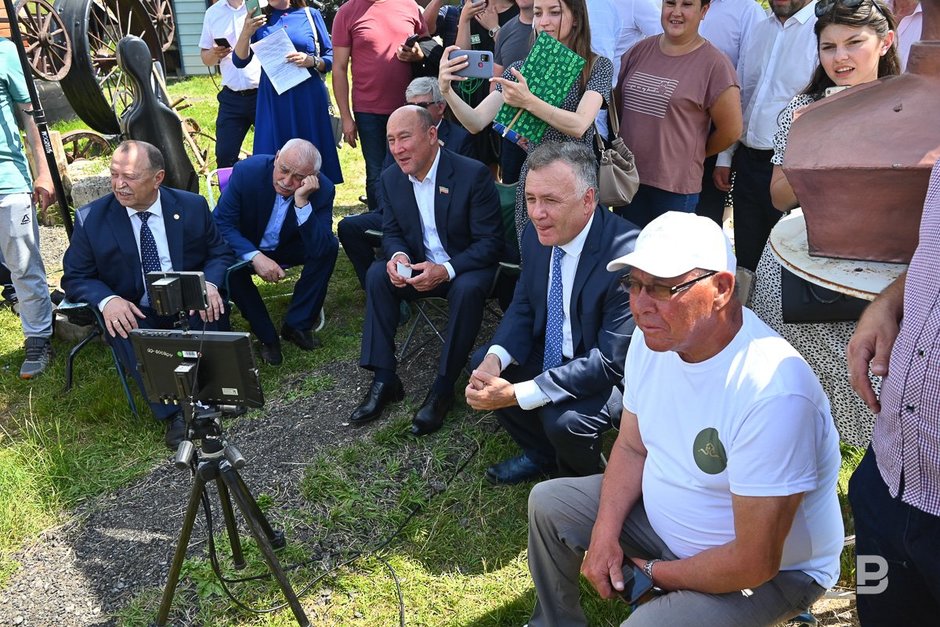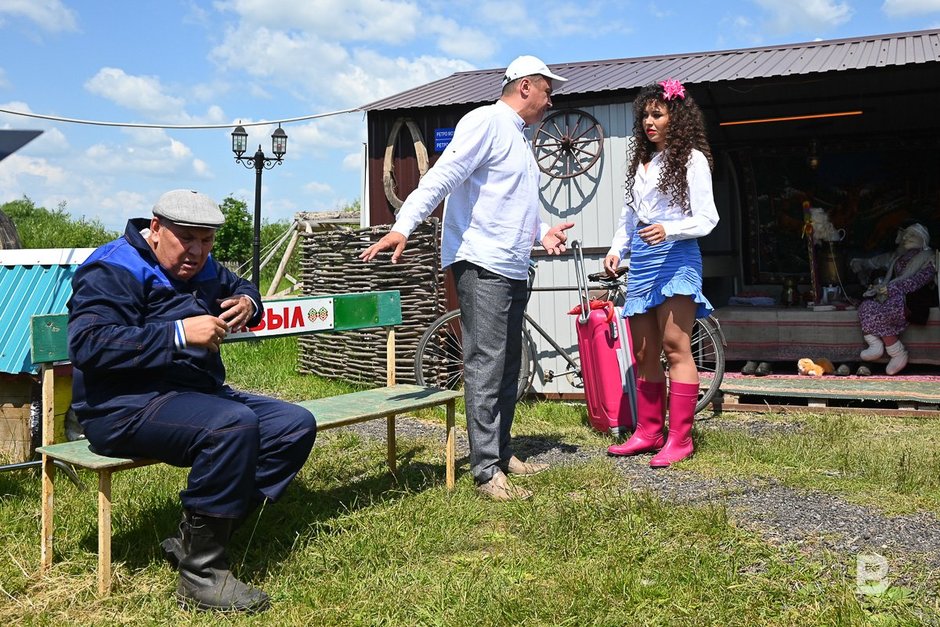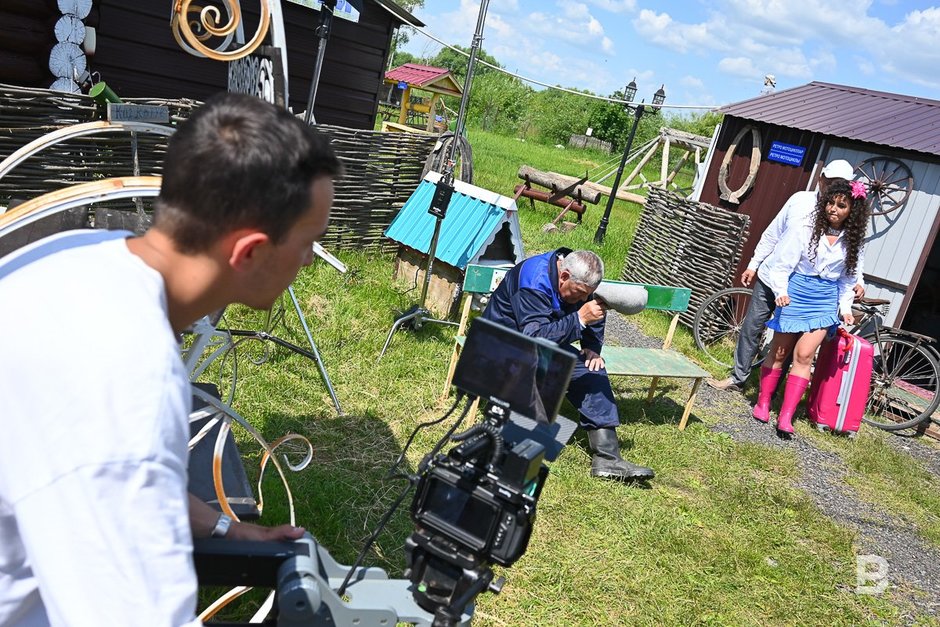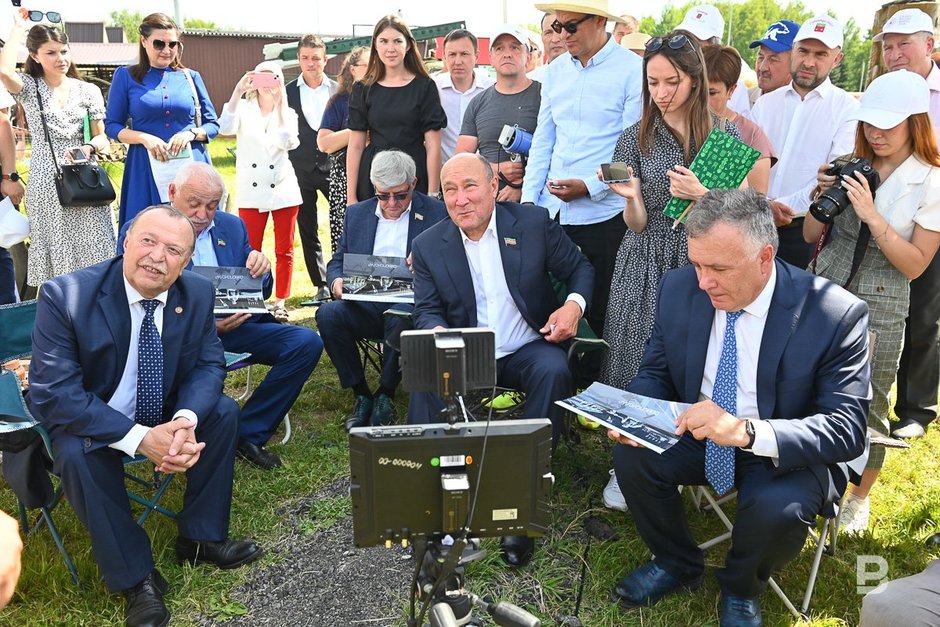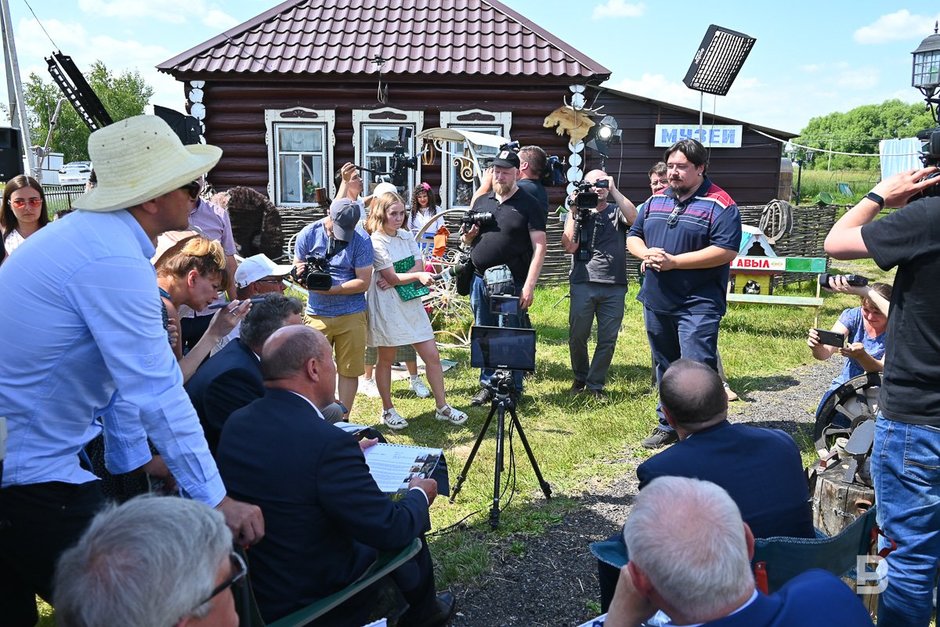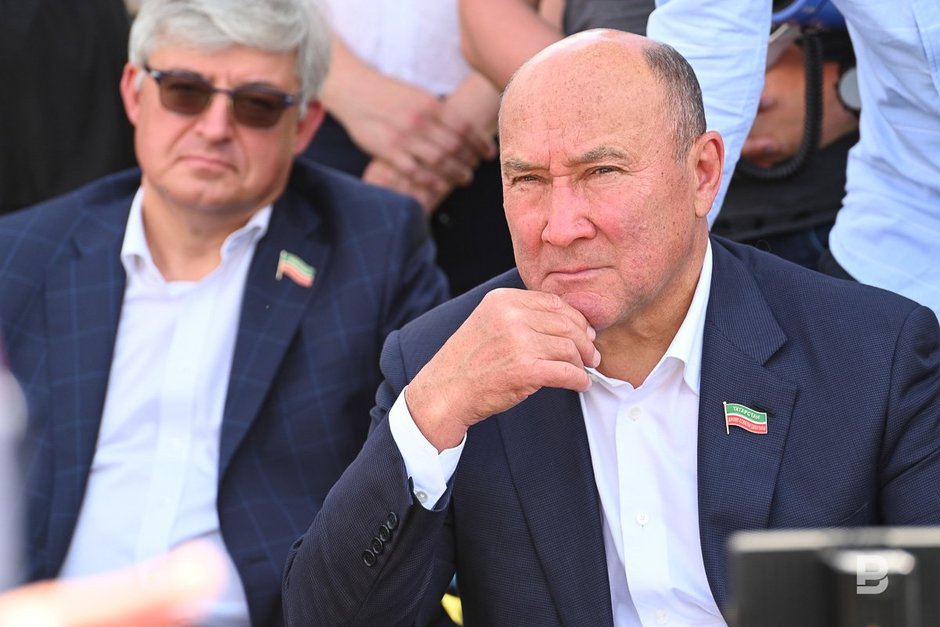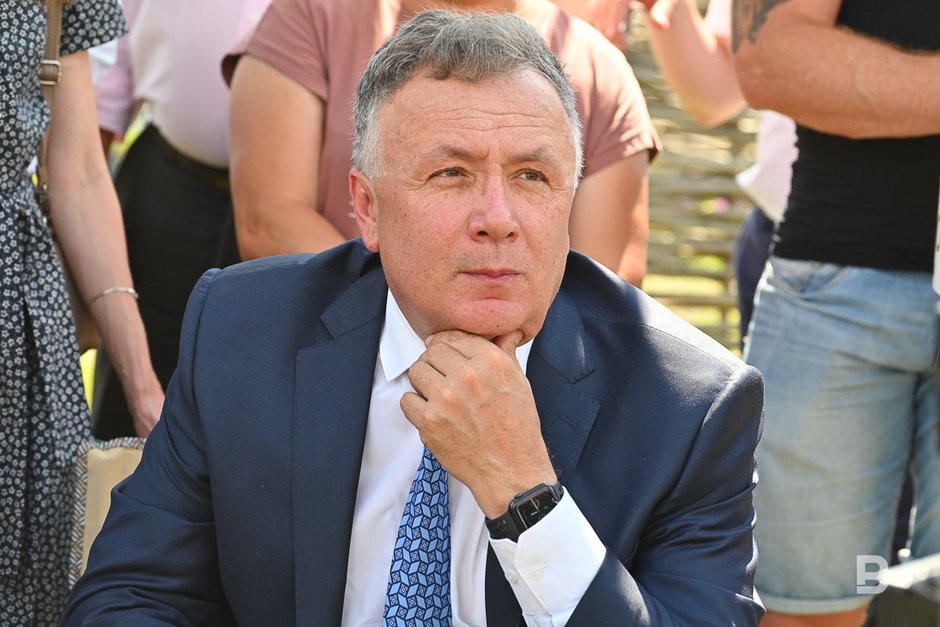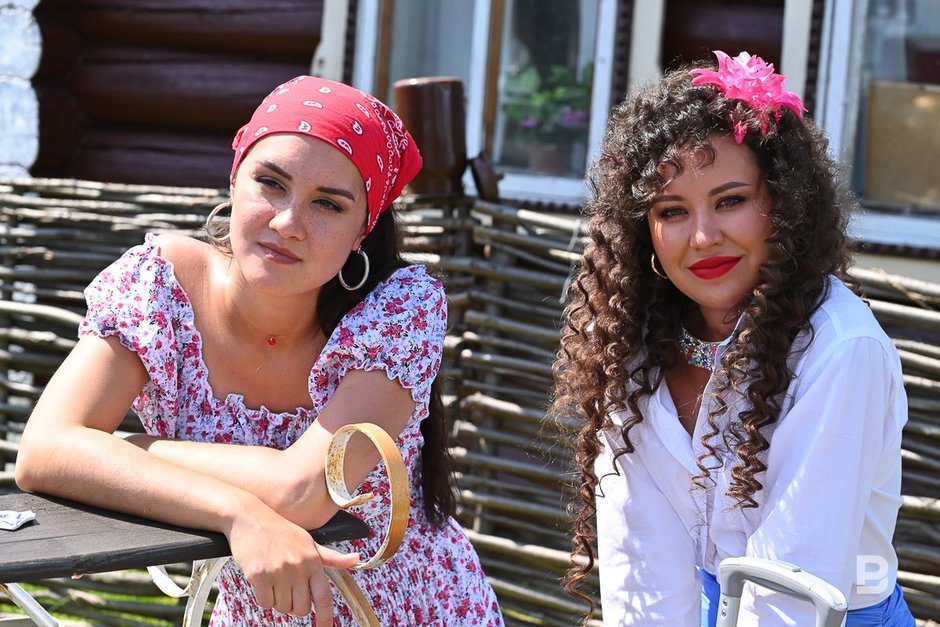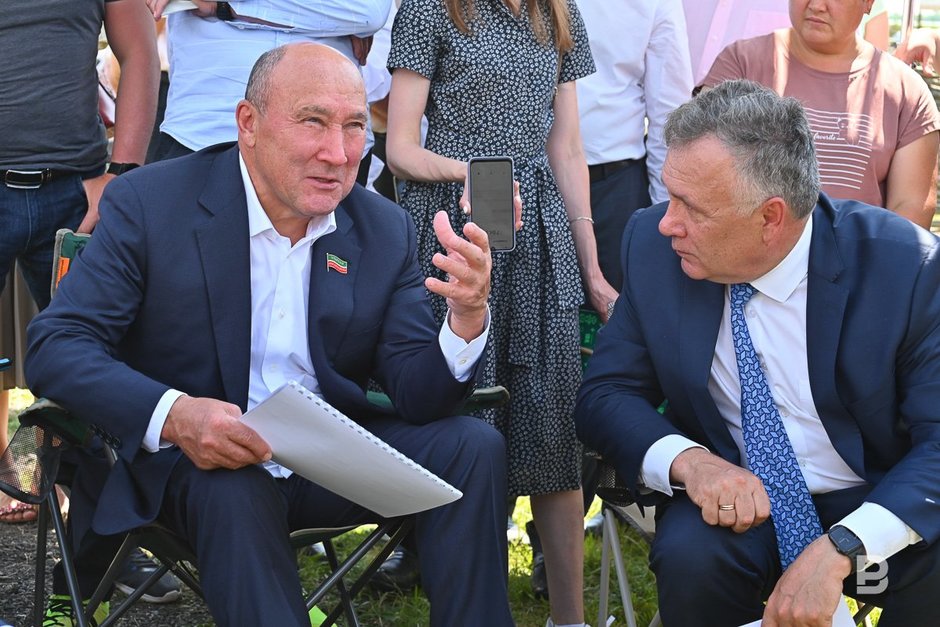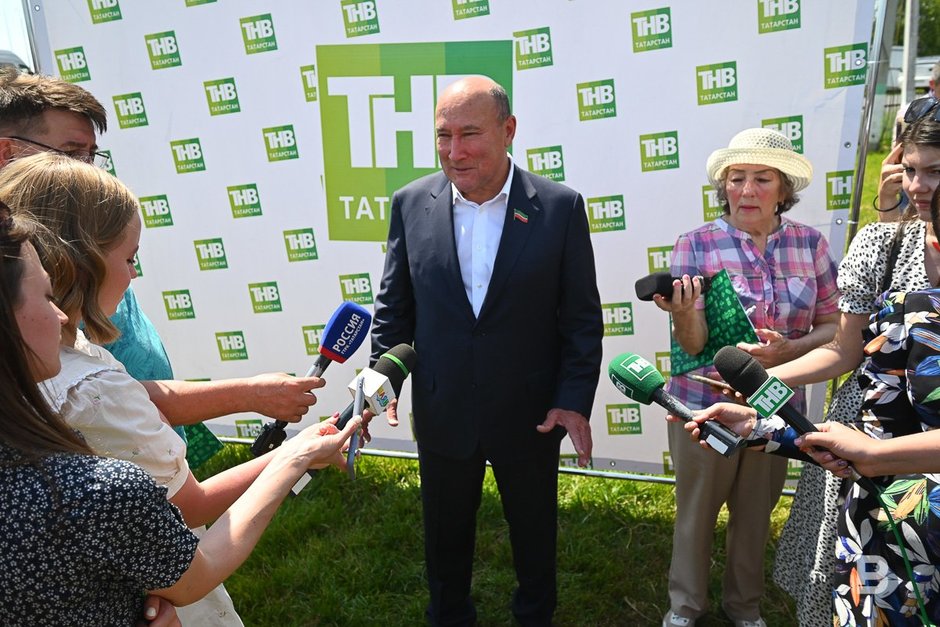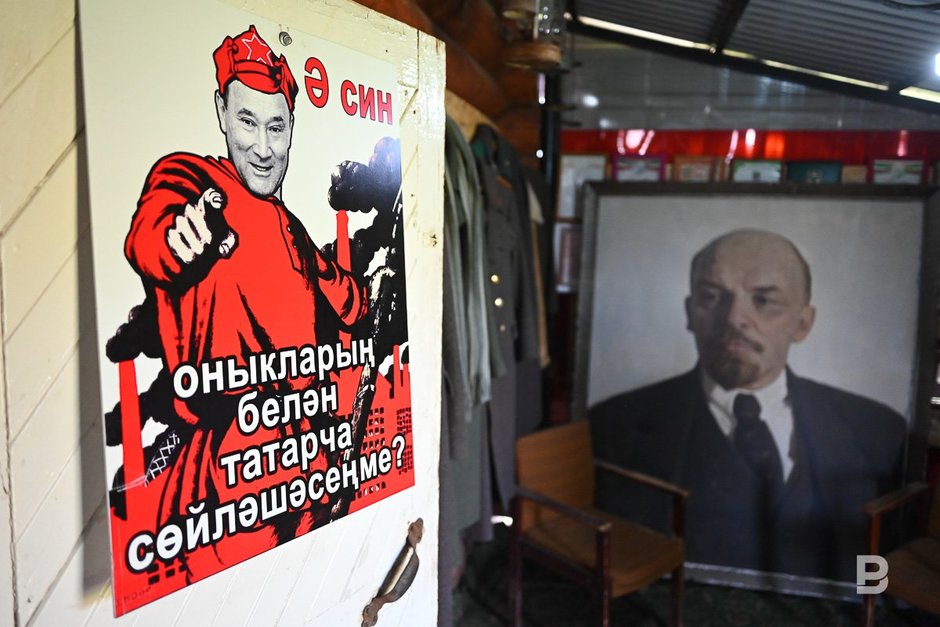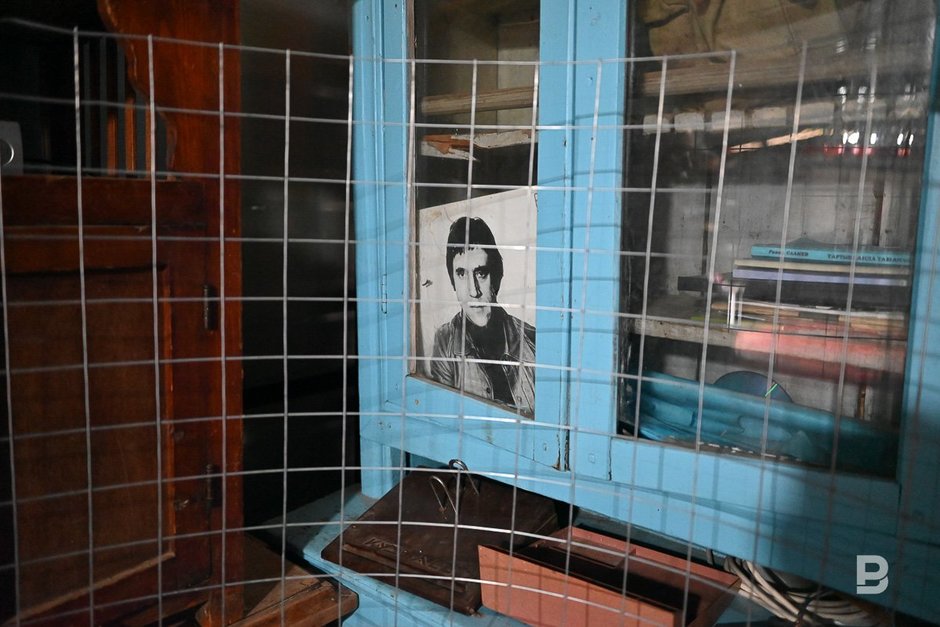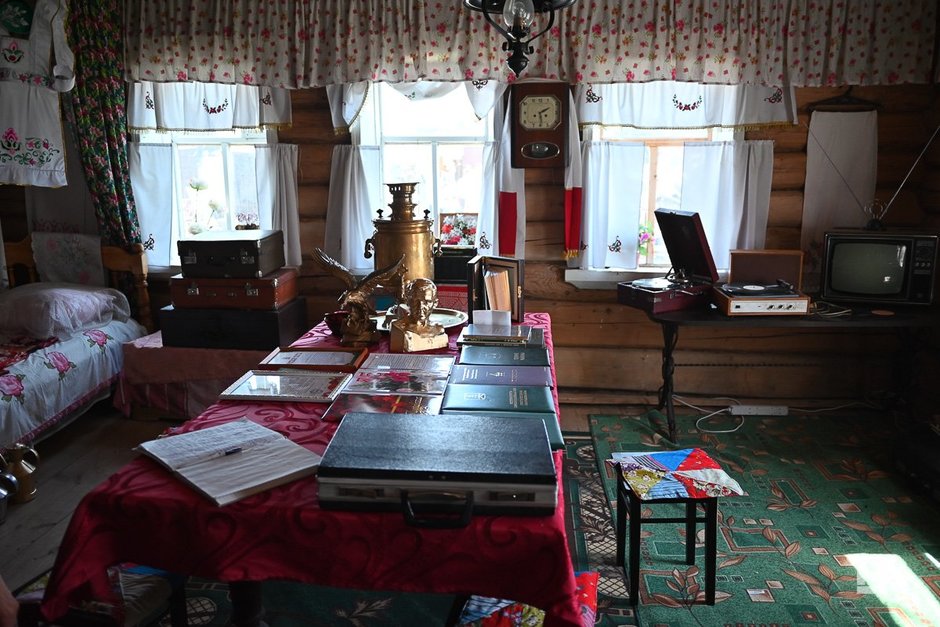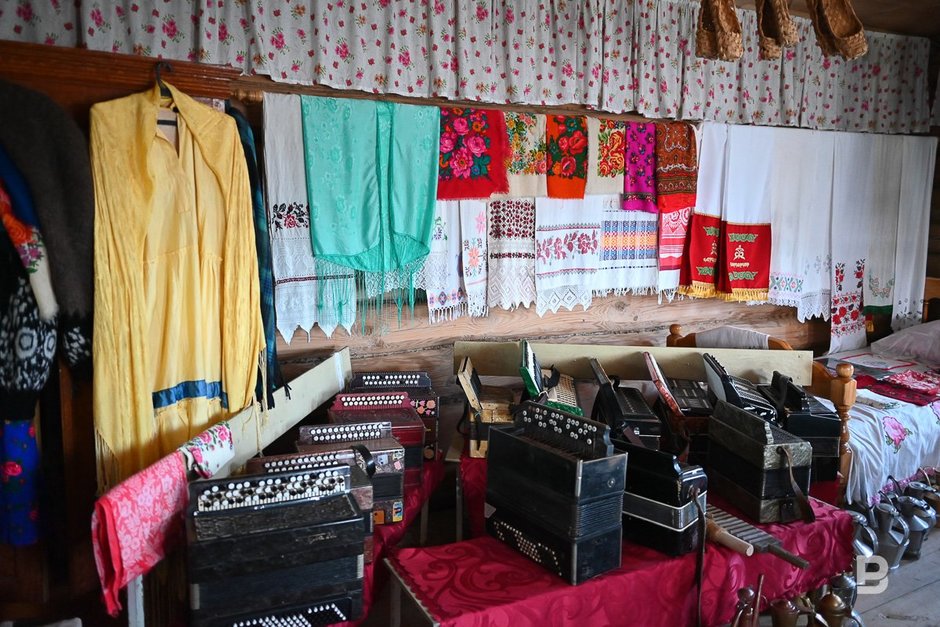‘It will be a tough series!’: Ilshat Aminov and Co. launching a new ethno-cultural TV project
Along with professional actors, residents of the Tyulyachinsky district are taking part in the filming
Novy Vek TV and radio company and Vatan 21 Vek film company have launched a new series produced with the financial support of Tatneft. If the action of the previous one, “Ber-ber hel”, took place mainly in a country house, and the shootings took place in the suburbs of Kazan, now the film crew is in the Tyulyachinsky district to shoot “Almash” (“Exchange”).
A beautiful tradition
Ilshat Aminov, the director general of TNV, Marat Akhmetov, the chairman of the Commission under the President of the Republic of Tatarstan on the Preservation and Development of the Tatar language and native languages of representatives of peoples living in the Republic of Tatarstan, Ayrat Zaripov, the chairman of the Committee on Education, Culture, Science and National Affairs, and Nazip Khazipov, the head of the Tyulyachinsky district, came to the shooting area to break the plate, which marks the start of a new film project.
Also in the welcoming remarks, Aminov personally thanked Nail Ulfatovich Maganov, the director general of Tatneft PJSC, for the constant support of Tatar culture.
Having broken the plate only on the second time, Aminov, out of habit, jokingly exclaimed:
“It will be a difficult series!
Then he proudly showed off the cut on his finger. Obviously, this is not the last film plate in the hands of Ilshat Yunusovich. Albert Shakirov, one of the screenwriters of the film, immediately offered three more projects.
“Ezhemden Ezhel” develops the ideas of the play “The Old Man from the village of Aldyrmysh”: for a misdemeanor against the old man Almandar, Death is sent to the village of Azimovo (such, by the way, really exists in the Apastavo district) in the guise of a person.
Kirmen tells how a young man preparing for a wedding is arranged by his father to work in the Kremlin, as it turns out later, not in large offices, but in a museum-reserve.
The third picture, “Filling Station” or “Parking Lot”, tells how a dispute arises between two villages: a filling station is being built near one, where one of the high-ranking leaders who have made a mistake is lowered (Akhmetov, Khazipov and Zaripov clearly appreciated the joke here), well, guests come to the filling station during the series, up to famous ones like Salavat.
“Apparently, this is our homework?" Akhmetov joked in response, looking at the folders with synopses. It is clear that his commission intends to continue to cooperate with television. Akhmetov, reminding journalists about the previous series, filmed with the support of the language commission, noted:
“This beautiful tradition continues. Our goal is in this, since the TNV channel has a large audience, with TNV-Planet it has millions. We cannot ignore the role of this company in the promotion of the Tatar language — this is indisputable.
Two brothers, one Fannur
In the current series, Albert Shakirov and Almaz Akberov (he is also the director) came up with a story about two brothers. One is successful, country person. The other — the father's disappointment — is from the city. By the will of fate, they will have to switch places.
“The father sees both children in agriculture," explains Shakirov. “And one of the brothers sees some kind of backward space, but then sees that he was wrong.
Fannur Mukhametzyanov plays the lead role.
“It's hard for him to play, because the heroes are completely different in character," says Akberov. “One is more calm, the other is more arrogant. Sometimes we shoot for a long time to find the exact solution.
Akberov also notes that Shakirov managed to accurately convey two “types” of Tatar language— as they speak in the cities and in the villages.
In the frame, one can see Mukhametzyanov's colleagues at the Kamalov Theatre, Askhat Khismatov, Aygul Shakurova, Firaya Akberova, Iskander Khayrullin (he is also expected to play the role of Azimov's Death), Radik Bariev. The latter traditionally combines the work of an actor and a second director. According to him, there is only one difficulty — he has to live in a hotel, when, like in other series, he could return home after filming. Also in the frame we will clearly see a lot of villagers. The journalists saw the works in the Tugan Avyl complex, which combines a hotel, a cafe and a museum site with many exhibits. It was especially interesting to go to the village hut with a huge number of bayans, kitchen utensils, as well as a huge portrait of Lenin. For example, Carmelite is settled here — she is played by the actress of the Almetyevsk Theatку, Ange Sayfutdinova. Carmelita is a Spanish woman who comes to a Tatar village and changes under its influence. In fact, she is a kind of student in this series. There is a role here for Gamil Askhadullin, who played grandfather in “Ber-ber khel”. Leysan Gataullina from the Kamal theatre was invited to play the role of a postwoman.
“This is my first try in cinema. It was difficult for me to retrain from theatrical acting to work with the camera," she admits.
“This is not the village that became stereotypical in the 1990s. And this must be shown”
At the same time, all participants in the process note how much the quality increases with each series.
“In fact, Akberov and I have formed a tandem. He, realising that he will then film it, immediately writes with an eye to work," Shakirov says. “In addition to Tugan Avyl, we shoot in the village of Alan. Villages are really changing, this is not the village that became stereotypical in the 1990s. And this must be shown.
Besides, according to Akberov, in the series, designed for 20 episodes of 26 minutes, we will see a lot of villagers. However, they often do not want to look like in documentaries and tend to appear in the frame in the best possible way. So even Akhmetov asked that cows, for example, be filmed “for real” in Almash.
The series premieres in October, as well as “Ber-ber khel”, presented last year. The story of a mixed family, where everyone gradually begins to speak Tatar, by the way, consisted of 40 episodes. However, as Aminov joked, resources allow them to shoot long series:
“Our people watched Turkish and Brazilian TV series, they have had enough. They want our own series about our life.”
